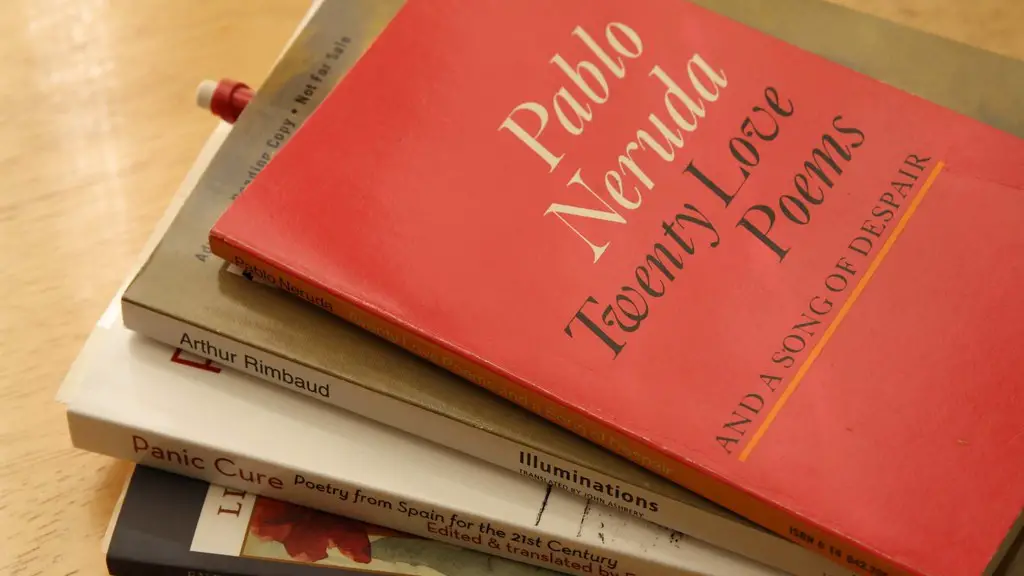The internet dramatically changed the way in which we share, access and produce literature, with the shut-down of Poetry.com serving as a prime example. Poetry.com received much attention when it first launched back in 1999, claiming to be a repository of thousands of poems from renowned – and supposedly lesser known – authors. The site was revolutionary, with the first of its kind to provide the ability for users to upload their own poems, as well as interacting with other users. It seemed at the time to provide an unprecedented opportunity for budding poets to make their mark, and become published authors without the ‘formal’ route of a traditional publisher.
Yet, doubts remained about the legitimacy of the site from the outset – rumours surfaced regarding the accuracy of the copyright information, or lack thereof. As the years went on, Poetry.com seemed to be facing a crisis of integrity, with many of their authors never seeing their works actually published despite claims that they would. Unsurprisingly, these users had no choice but to remain silent and accept their treatment, as the terms and conditions of Poetry.com enabled the company to retain full copyright over the works created – regardless of whether they were actually published.
Whilst more cynical readers would recognise the cash-grab being occurred at the expense of aspiring writers, much of the ensuing controversy was a result of the varying quality of the published work. Those poems which appeared as authentic works of literature were competing for attention alongside an increasing number of naïve phrases, ending up as an unrecognisable jumble of words. Both parties felt hard done by and it seemed that the site had lost its purpose from the original mission – an online hub for creatives.
Since Poetry.com began to experience these difficulties, it was not long before the masses joined to boycott the site, with many turning to alternative platforms, including better-known and established sites such as Wattpad and WriteOn. For these platforms, the original concept remained intact – an online hub for creatives to share, publish and interact with others in the same industry. What’s more, is that their terms and conditions all but protected the rights of authors and their works.
It would appear however, that Poetry.com have recycled, if you will, their platform leader. Having recently re-launched, they now appear to have realised their own shortcomings and have redesigned their site to offer a better user experience. Where previously the terms accepted by users ‘waived’ their moral rights, this has now been amended to provide the same protection as other sites of its type. Poetry.com also appear to have tightened the reins on the quality of materials published, with a meticulous review process ensuring users cannot flood the market with substandard works.
Whilst this does lead one to question their business model, the company are evidently trying their best to steer their miss-step in the right direction. Group activities and curated projects allow users to spotlight certain artists or themes, offering unique insight into both the culture and processes of the written/published poem.
Popularity and Audience
What is interesting to note, is that despite the initial drama, the platform is actually more popular than ever, with thousands of dedicated users returning to the site on a daily basis. Arguably, the controversy and negative press which surrounded the platform provided far more of an advertising boost than the company could have ever paid for, thus it is now more successfully than ever before.
It would appear therefore, that the press that Poetry.com received was not all necessarily negative – if Poetry.com had never come under such scrutiny, then the platform would likely not be to the extent that it is today. It could be argued, that by taking the ‘lesser known’ project to mainstream attention, the company were able to receive both the necessary funding and interest for the enormous task of transition.
The variety of audiences on the platform is vast, with the creative sector being well catered to. It goes without saying that the established writers and published authors form a large portion of the user-base, yet the platform also provides opportunities for hobbyists and amateurs to upload their content alongside that of the professionals.
The online literature landscape has changed dramatically, as evidenced by the development of Poetry.com. Although the platform originally gained notoriety for their controversial techniques, they now appear to have turned over a new leaf, providing a protected space for authors of all levels and backgrounds to share their work.
Demographics Of Users
Poetry.com has always prided itself on being an open platform for all and this is evidently true with the extent of demographics participating on the site. According to research, the platform is mainly comprised of younger adults aged 15-24, yet surprisingly, the second largest demographic is quite significantly the pension age category. Thus, the platform has become an increasingly intergenerational hub for literature.
Many amongst the older demographics have come to appreciate the platform for its ease of use, referring to it likewise as a ‘tool’. This is a sentiment which is echoed across all demographics – Poetry.com is viewed to be a one-stop-shop for all poets, authors, readers and writers alike. Users have noted that they appreciate their customised approach, it being one of the most user friendly of its kind.
For instance, many participants have commented favourably on the notion that poets can join the community and immediately begin writing, publishing and interacting with others without having to provide extensive credentials – this was particularly welcomed by the mainstream user-base, for whom Poetry.com serves as an entry-level platform for creative expression.
Localisation
Whilst the main platform remains accessible to most users around the world, it appears the company are keen to embrace localisation for authors and poets. By providing language-specific areas, participants are able to interact with others in their own dialects, whilst producing content in their native tongues. This has allowed many authors to truly showcase their own culture, with a new found appreciation for their national literature now on the rise.
Yet, this also performs a further practical advantage – as the current climate is heavily focused on access to digital resources and education, Poetry.com provide translations of work created in other languages, in addition to an ‘inter-linguistic’ platform for users to interact with those of a different nationality. This is incredibly valuable, particularly for those who are unable to obtain access to educational institutions.
Moreover, the translations feature allows authors to reach a larger and more diverse audience, with the potential for their works to go ‘viral’ amongst different cultures worldwide. For example, a poet in Mexico could have their works translated and accessed by readers in France, or a poet in South Africa could have their works translated to be read in Mexico – all without the assistance of industry or higher educational institutions.
Financial Model
The platform appears to have moved away from their previous cash-grabbing model and has updated their financial model accordingly. Whilst users can still purchase collections of works from the platform, the bulk of their income is derived from advertising, in addition to subscription options.
The subscription packages are particularly useful for aspiring authors who would like a more exclusive platform to have their works published, offering a range of prices alongside marketing materials and opportunities to join exclusive contests. For those who are more serious about their work, then the option to access the service is certainly of value.
What’s more, is the platform are actively exploring options to unlock extra tools and features, including the integration of e-commerce stores and book-publishing services. The exact details have yet to be ironed out, yet chief amongst the apprehensions is how such a move would need to be further regulated due to the restriction on copyright.
Emerging Writers
The platform offers a unique opportunity for emerging writers to launch their career and titles without fear of wallowing in an over-competitive marketplace. With the platform being seen as a one-stop-shop for creatives, many aspiring authors have felt empowered to enter the fray, using the platform’s tools and resources to launch their projects.
It certainly appears that Poetry.com is now the embodiment of its previously “published-yet-unpublished” ambition. Writers can now be published and gain access to a wide array of tools and resources, as well as promotional opportunities to expand their base. The platform remains a popular choice, not just for its ‘founding fathers’ but also for aspiring writers in search of their first break.
When a new author uploads an extract, they have the choice to have it featured on the main ‘explore’ page, giving the author potentially thousands of new readers – so long as the work is of a suitable quality. Finally, critiques and reviews are given by members of the community, therefore providing career defining moments for those participants who receive a high degree of praise for their works.
Conclusion
Whilst Poetry.com fell prey to a scandal, they are now back on track and even better than ever. Their formidable reputation remains intact, with users still attracted to the platform in search of creativity, translation, collaboration and more. With a tight review process, supportive community and customised approaches, this has become a promising platform for creatives of all types.





